Voters reject pesticide-free farming proposals
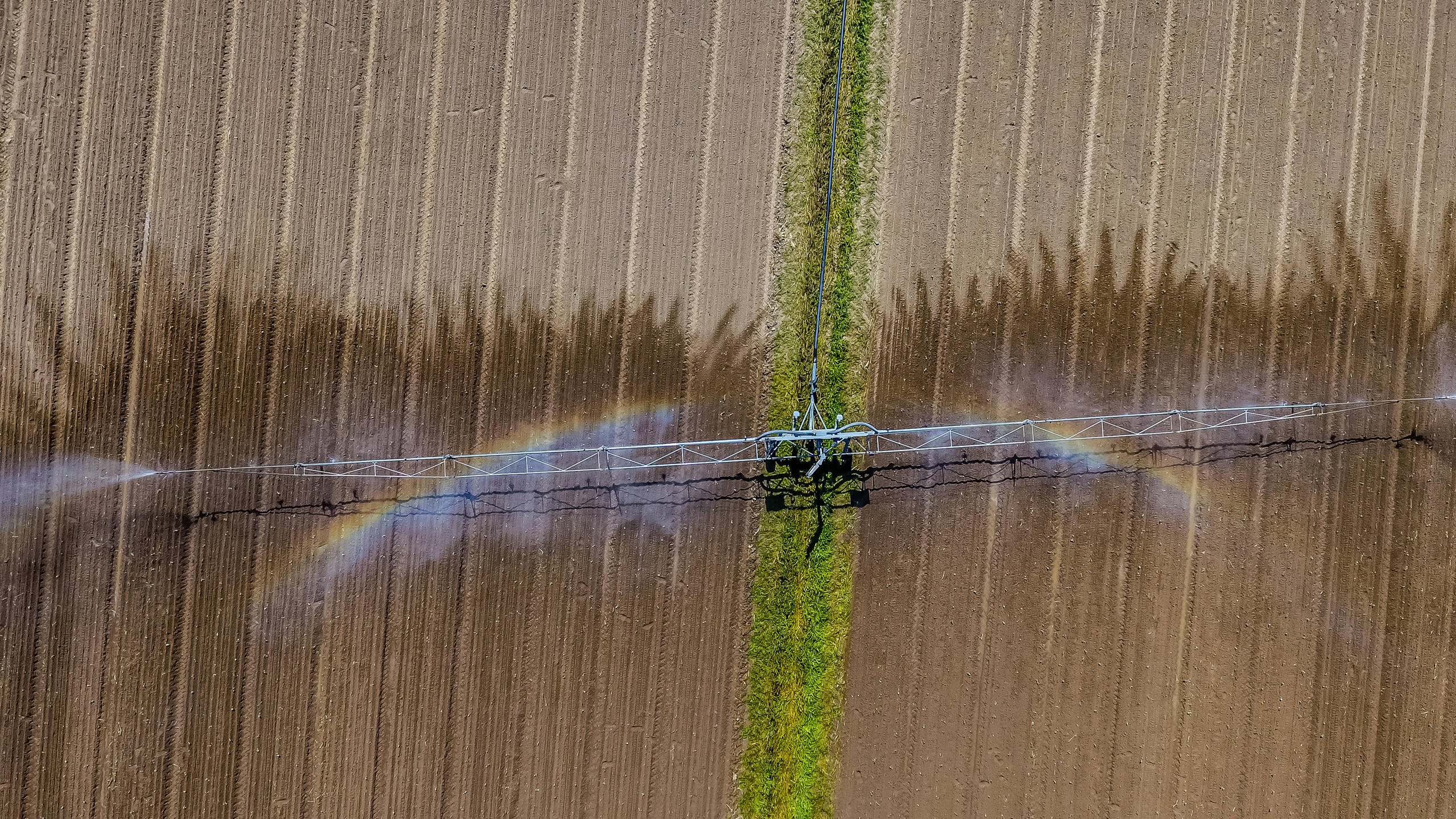
Over 60% of Swiss voters have thrown out a pair of initiatives aiming to ban the use of synthetic pesticides in the country.
After months of heated campaigning, it was a clear “no” on Sunday for the proposals, which would have made Switzerland an organic farming pioneer by becoming the first European country to ban products like artificial weedkillers and fungicides.
The final results showed both initiatives were shot down by virtually the same amount of voters, 60.6% and 60.7% – a symmetry which Lukas Golder of the GfS Bern research institute said pointed towards many “double no” options on ballot sheets.
Not even the predictably higher urban backing managed to make a big difference: although the result was tighter in places like Geneva and Zurich, just one of the 26 Swiss cantons, Basel City, actually produced a majority in favour.
Turnout was high, at just under 60%.
‘Huge relief’
Economics Minister Guy Parmelin said on Sunday that after a “highly emotional” campaign, voters had chosen the “rational and pragmatic” option for the future of agriculture and food security in Switzerland.
Rather than the “revolution” proposed by the initiatives, citizens gave their backing to the “evolution” proposed by government and parliament towards a more sustainable farming sector, Parmelin said.
Such an evolution, as Parmelin had argued during the campaign, includes a legal project aiming to reduce by 50% the risks associated with synthetic pesticides by 2027.
Urs Schneider, deputy director of the Swiss farmers’ federation, also said on Sunday that “objective arguments” had triumphed over emotional ones, and that the result was a “huge relief” for farmers.
Schneider’s group, along with the government, had argued that the proposals to ban synthetic pesticides, or to cut government subsidies to farmers who use them, was an “extreme” approach that would mean falling crop yields and higher food prices.
It would have meant “fundamental changes that went too far”, he told Swiss public television SRF.
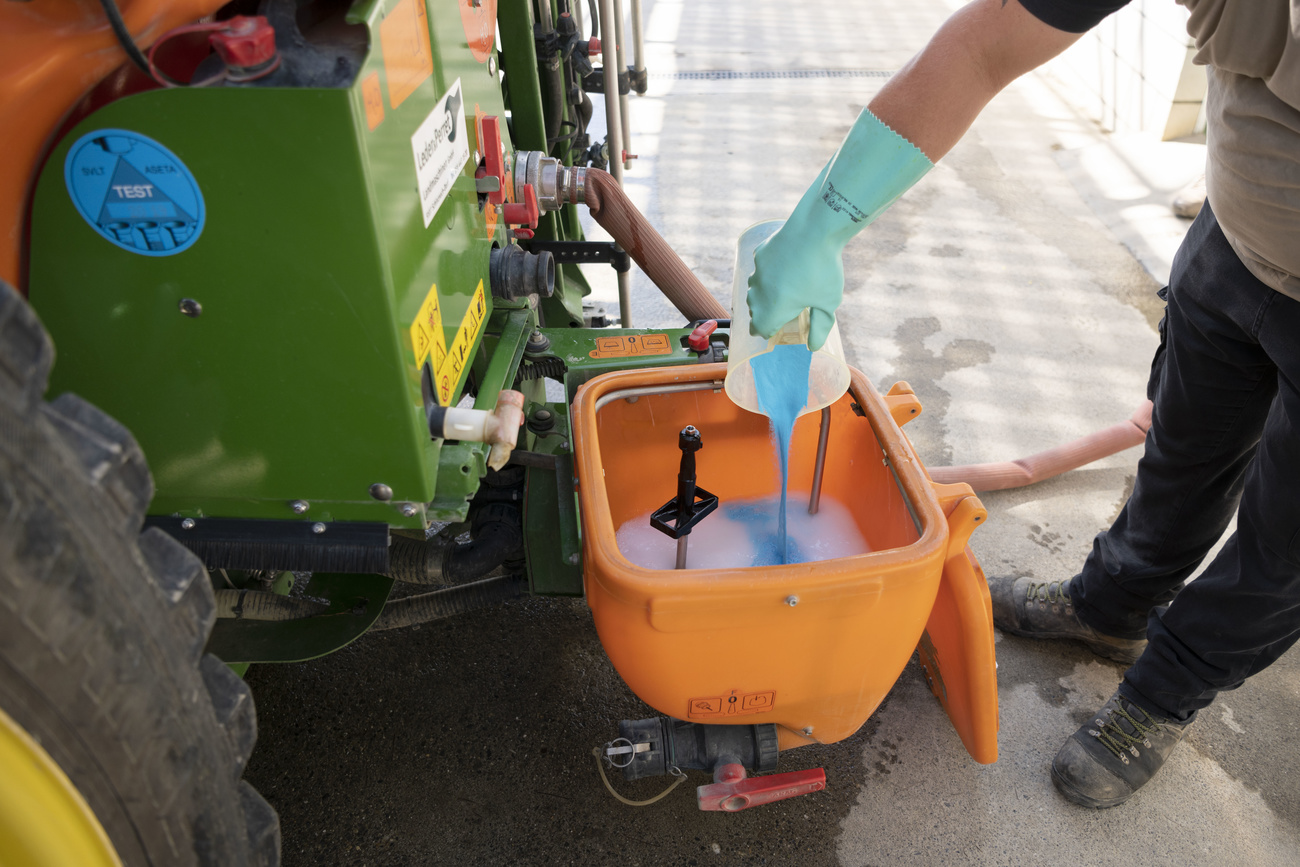
More
Switzerland and pesticides: Toxic relationship or necessary evil?
Debate opened
For their part, anti-pesticide campaigners tried to claim a moral victory on Sunday, saying that at least the question had become a topic of discussion – one which is not set to go away.
Dominik Waser of the anti-pesticide committee meanwhile said that the result had been driven by a campaign which “stirred up fears” – especially in rural regions – about existential threats to farmers.
Pointing to the some 15% of Swiss farmers who already operate organically – i.e. without using synthetic pesticides – Waser said such alarmism was not justified, and echoed many of the initiative supporters in denying that they were “too extreme”.
Similarly, Franziska Herren of the “drinking water” initiative committee (see details of both proposals below) said that the civil society campaigns had been no match for the combined forces of the pro-pesticide groups, which included government, parliament, most farming organisations, and pesticide producers like Swiss-based Syngenta.
“We were simply too small,” Herren told Swiss public television SRF.

More
Newsletters
Similar goal, different methods
While both issues up for vote on Sunday were driven by environmental concerns, and both took aim at synthetic pesticides, they both had different approaches to getting there.
The “anti-pesticide” initiative had proposed an outright ban on the use of synthetic products for agricultural, private and commercial use, to be implemented within ten years. It also wanted to stop imports produced using such products.
The “drinking water” initiative wanted to restrict the payment of government subsidies (worth some CHF3 billion a year) to farmers who work without using pesticides and prophylactic antibiotics. It also wanted to cut down on imports of animal feed.
Both proposals had been backed by left-wing parties, environmental groups, and (in the case of the pesticide but not the water initiative) organic farmers.
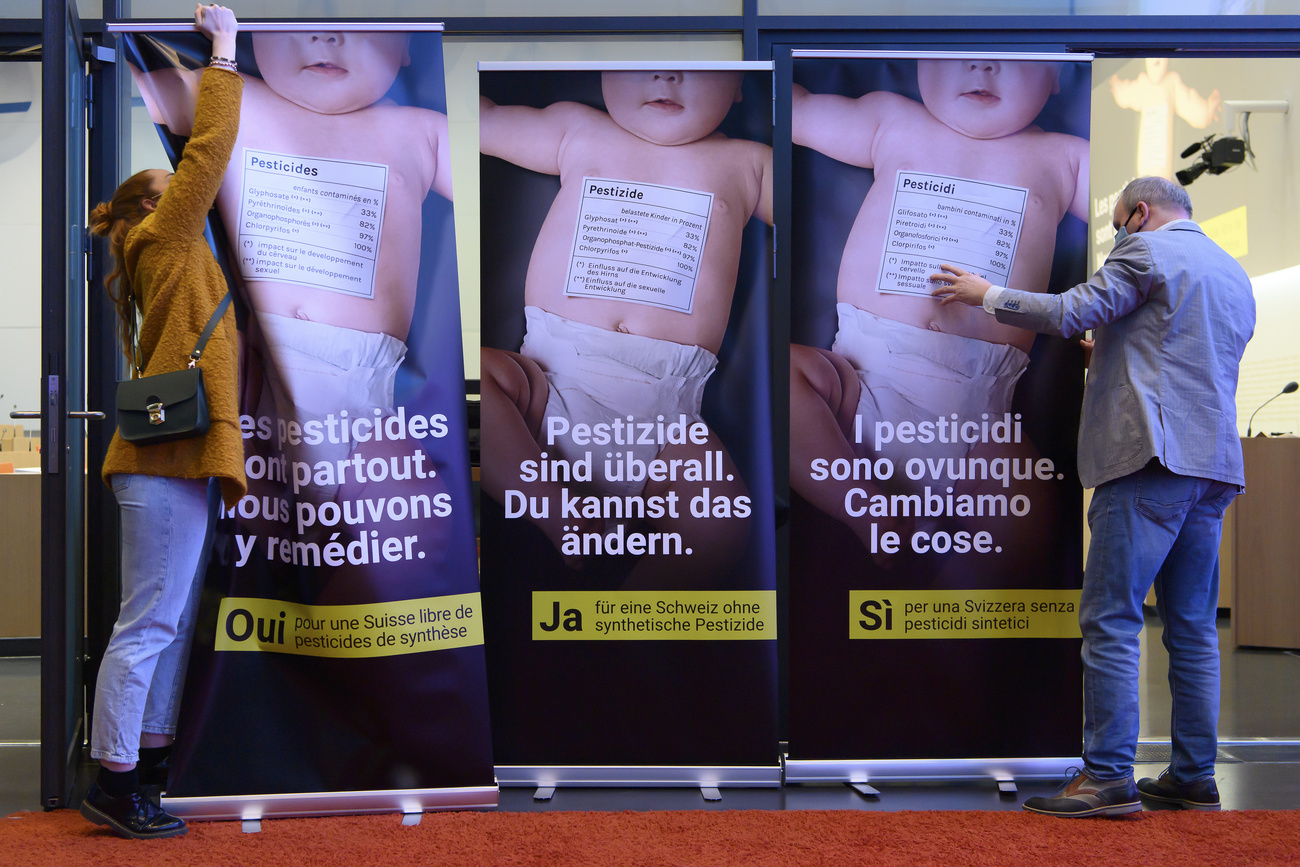
More
Pesticide initiatives: a ‘David-versus-Goliath’ campaign
Reducing fossil fuel emissions (CO2 law) 48.4% yes 51.6% no
‘Drinking water’ initiative 39.3% yes 60.7% no
‘Anti-pesticide’ initiative 39.4% yes 60.6% no
Preventing extremism (Anti-terrorism law) 56.6% yes 43.4% no
Government pandemic policy (Covid-19 law) 60.2% yes 39.8% no
Turnout: 59.7%
About 5.5 million Swiss citizens, including registered expat Swiss, were eligible to take part in the votes.
There were also additional ballots in 12 of the country’s 26 cantons and at local levels on June 13.

In compliance with the JTI standards
More: SWI swissinfo.ch certified by the Journalism Trust Initiative









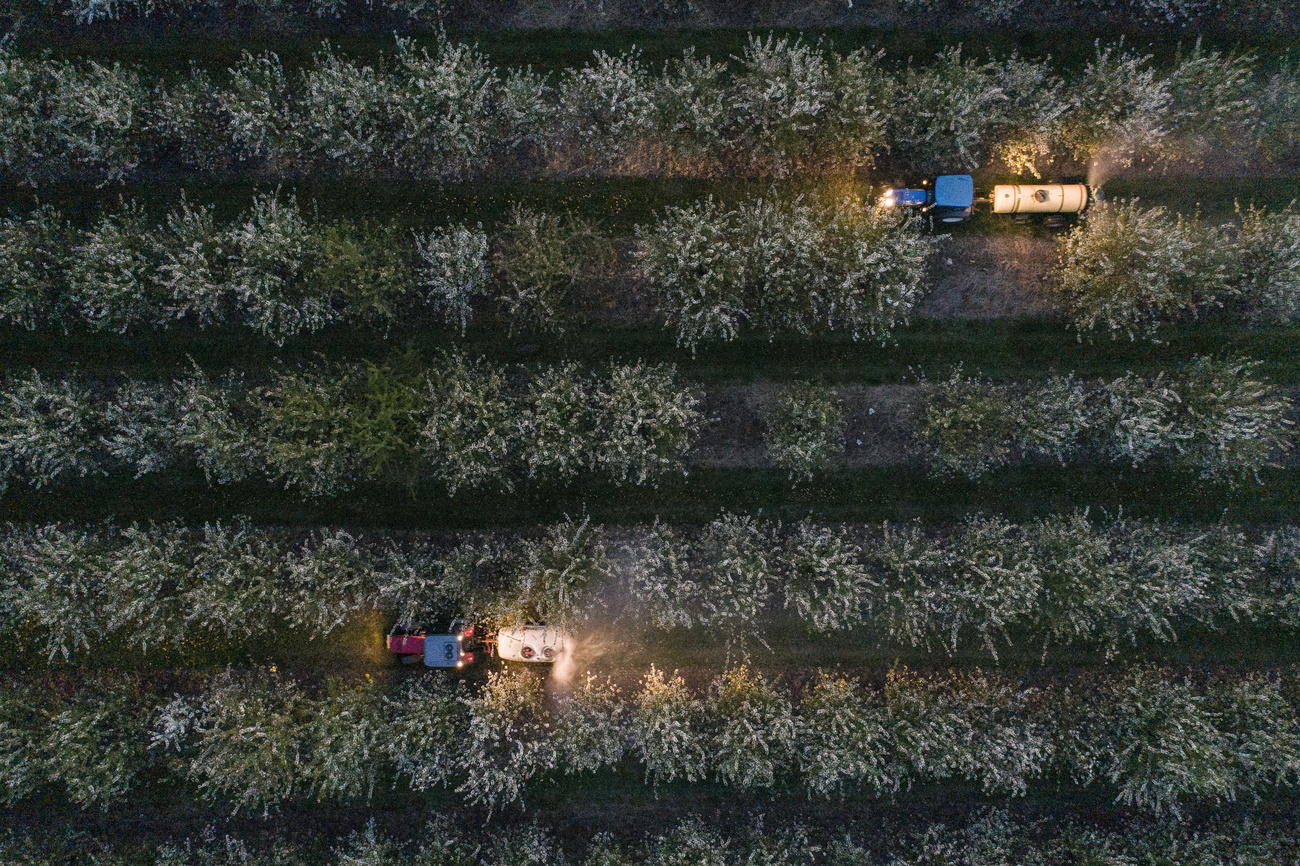
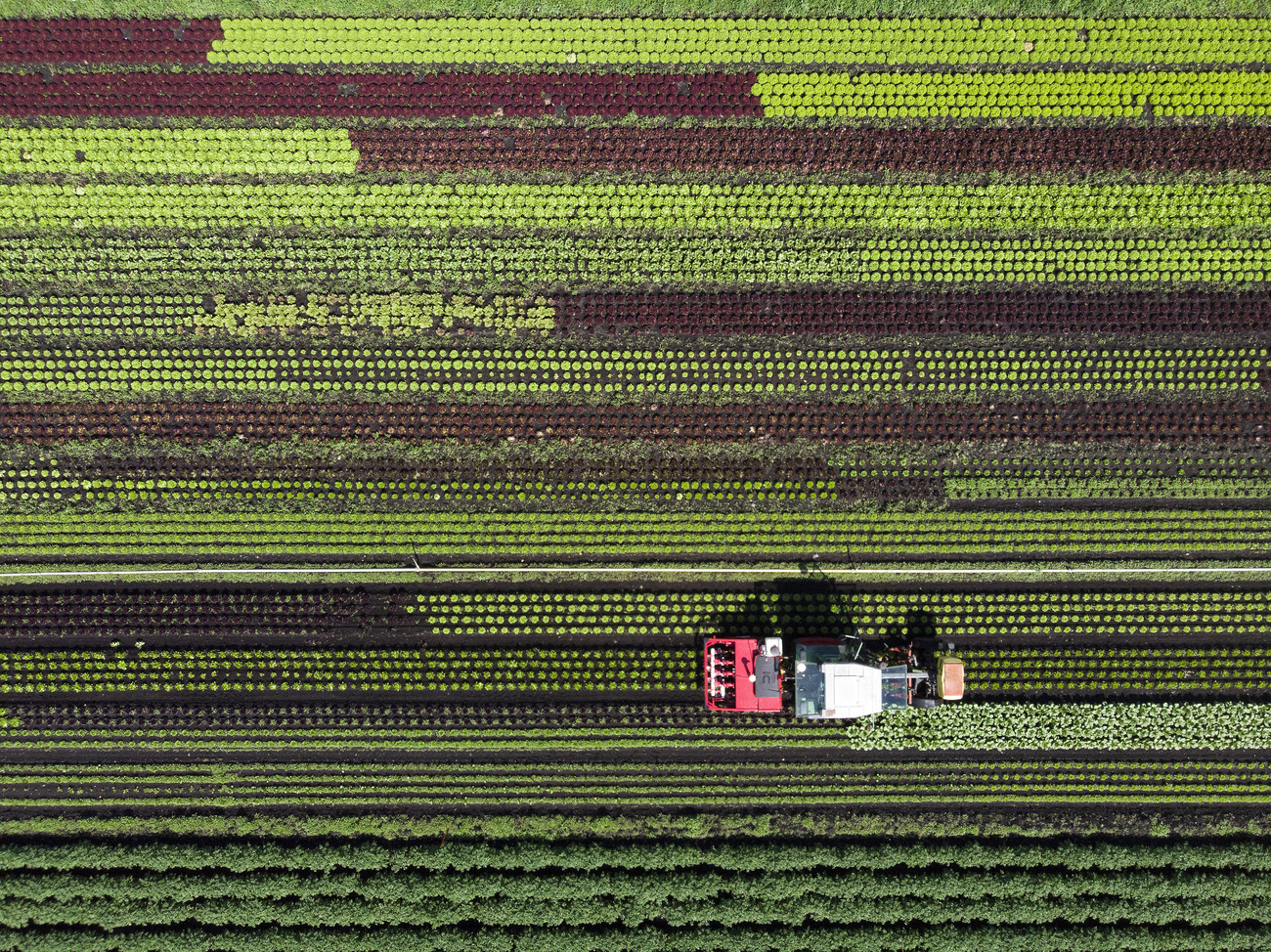
You can find an overview of ongoing debates with our journalists here . Please join us!
If you want to start a conversation about a topic raised in this article or want to report factual errors, email us at english@swissinfo.ch.